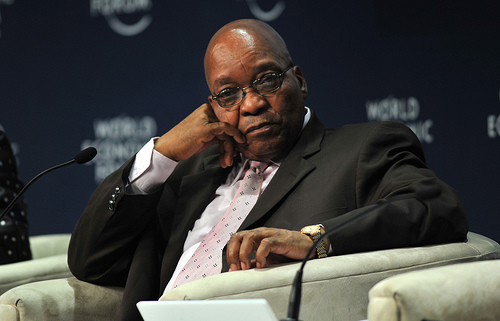
The BRICS are in trouble – individually, that is. Growth has been, compared to previous years, relatively slow in 2012, and is expected to remain sluggish in 2013. As a consequence, observers from all over the world have argued that it is time to bury the BRICS term. Jim O’Neill’s idea, they say, which became a political platform in 2009, has lost its raison d’etre, now that emerging powers’ growth is no longer as impressive as it once was. Hence O’Neill’s attempt to promote his next idea, the Next-11, which includes smaller, faster-growing countries.
Yet those who argue that the BRICS grouping is destined to whither away just because growth has slowed recently do not appreciate the reasons that have led to the term’s institutionalization in the first place: the belief that the BRICS’ meetings serve as a useful vehicle to promote South-South cooperation, which has grown considerably over the past two decades. Slow growth alone cannot undo the desire to diversify emerging powers’ partnerships – after all, South-South cooperation is one of emerging powers’ key elements in an attempt to democratize global affairs and reduce the disproportional weight the Global North has had in the global conversation until nonw.
As a consequence, policy makers in Brasília, Moscow, Delhi, Beijing and Pretoria would make a grave mistake if they decided not to strengthen intra-BRICS cooperation further. Looking beyond day-to-day growth figures in India or China, diplomats in Brasília are aware that China’s and India’s rise remains the most probable scenario, and one that Brazil remains entirely unprepared for – hence their support for the BRICS platform. Both economic and political ties between emerging powers remain too shallow to seriously explore possibilities to deepen cooperation, and the expansion of the political BRICS concept represents a meaningful solution to its members to deal with this challenge.
When the BRICS’ leaders will meet for the 5th time in March in Durban (South Africa), the international media will collectively predict the grouping’s demise. Plans to create the BRICS Development Bank will be regarded as empty promises. It is up to policy makers in the BRICS’ capitals to prove them wrong.
Read also:
Has Mr. O’Neill’s BRICs idea changed the course of history?
Why IBSA and BRICS should not merge
What will the 5th BRICS Summit in Durban bring?
Photo credit: Eric Mille/World Economic Forum








